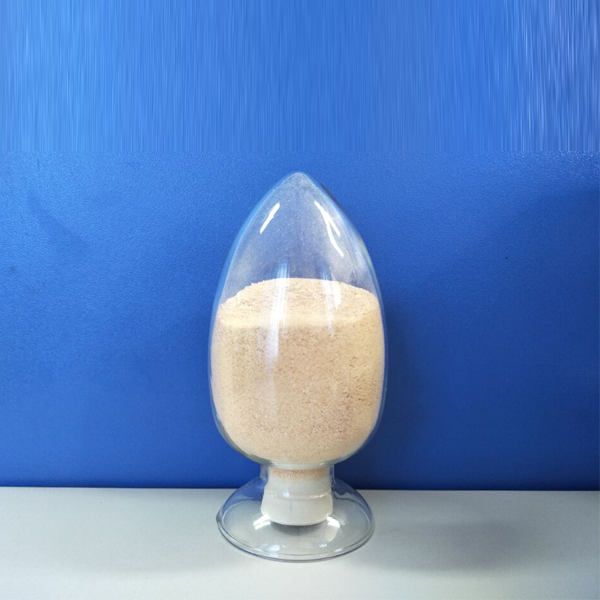
News
Дек . 30, 2024 19:15 Back to list
humic acid in soil
The Role of Humic Acid in Soil Health and Fertility
Humic acid, a complex mixture of organic compounds formed through the microbial degradation of plant and animal matter, plays a crucial role in soil health and fertility. As a primary component of humus, humic acid significantly contributes to various soil functions, from enhancing nutrient availability to improving soil structure and promoting microbial activity. Understanding the importance of humic acid in soil can help farmers and land managers adopt practices that enhance soil quality and sustainability.
One of the most significant contributions of humic acid to soil health is its ability to improve nutrient availability. Humic acid has a high cation-exchange capacity (CEC), which allows it to bind with essential nutrients such as nitrogen, phosphorus, potassium, and micronutrients. This binding action prevents these nutrients from leaching away with water and makes them more accessible to plants. In this way, humic acid acts as a reservoir of nutrients, promoting healthy plant growth and development. Increasing the levels of humic acid in the soil can lead to improved crop yields and reduced reliance on synthetic fertilizers, thereby minimizing environmental impacts.
In addition to nutrient retention, humic acid enhances soil structure, which is vital for water infiltration and retention. The presence of humic acid promotes the aggregation of soil particles, resulting in improved porosity and aeration. These characteristics facilitate healthy root development and minimize erosion. Soils rich in humic acid also have a higher water-holding capacity, making them more resilient to drought conditions. This is particularly important in the face of climate change, where erratic weather patterns can threaten agricultural productivity.
humic acid in soil

Another critical function of humic acid is its role in stimulating microbial activity in the soil. Microbial communities are integral to nutrient cycling, soil formation, and overall ecosystem health. Humic acid serves as a food source for various soil microorganisms, fostering a vibrant and diverse soil microbiome. This increased microbial activity can enhance the breakdown of organic matter, resulting in the release of additional nutrients for plants. Moreover, healthy microbial populations can help suppress soilborne diseases and pests, contributing to a more sustainable agricultural system.
The application of humic acid in agriculture can also lead to improved soil carbon sequestration. As humic acid is a stable form of organic carbon, its presence in soils can enhance the long-term storage of carbon. This not only helps mitigate climate change by reducing atmospheric carbon dioxide levels but also improves soil fertility and structure. Practices such as composting, cover cropping, and reduced tillage can increase the accumulation of humic substances in the soil, thereby promoting carbon sequestration.
Despite its many benefits, the levels of humic acid in soils can be influenced by various factors, including land management practices, soil type, and environmental conditions. For instance, conventional farming practices that rely heavily on synthetic chemicals can degrade soil organic matter and reduce humic acid levels over time. Conversely, organic farming practices that focus on the addition of organic materials, such as compost and manure, can enhance humic acid content and overall soil health.
In conclusion, humic acid is a vital component of healthy soils, contributing significantly to nutrient availability, soil structure, and microbial activity. By understanding the importance of humic acid and implementing practices that enhance its presence in soils, farmers and land managers can promote sustainable agricultural practices that support food security while minimizing environmental impacts. As we face the challenges of a changing climate and growing global population, preserving and enhancing soil health through the cultivation of humic acid will be essential for ensuring the long-term viability of our agricultural systems.
-
OEM Chelating Agent Preservative Supplier & Manufacturer High-Quality Customized Solutions
NewsJul.08,2025
-
OEM Potassium Chelating Agent Manufacturer - Custom Potassium Oxalate & Citrate Solutions
NewsJul.08,2025
-
OEM Pentasodium DTPA Chelating Agent Supplier & Manufacturer High Purity & Cost-Effective Solutions
NewsJul.08,2025
-
High-Efficiency Chelated Trace Elements Fertilizer Bulk Supplier & Manufacturer Quotes
NewsJul.07,2025
-
High Quality K Formation for a Chelating Agent – Reliable Manufacturer & Supplier
NewsJul.07,2025
-
Best Chelated Iron Supplement for Plants Reliable Chelated Iron Fertilizer Supplier & Price
NewsJul.06,2025
